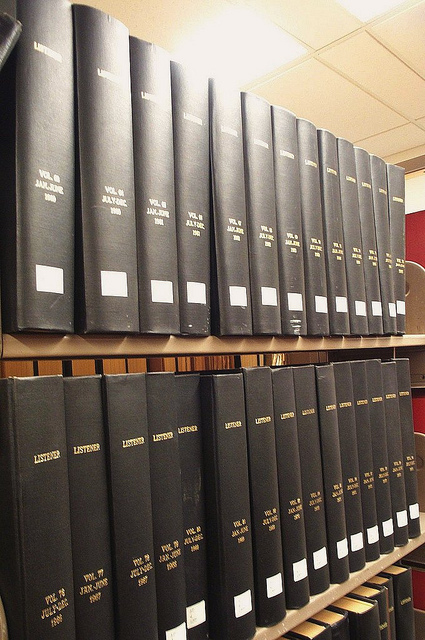This contribution will demonstrate new applications of RFID-utilization which go beyond the typical applications such as self check service to clients and security tasks.
At first we will describe our inventory workflow with RFID-devices and software to get real time information about the existing holding (or stock) and its position which is important for every library in order to monitor its assets and all visualisations and indications of online-catalogue informations such as the position of each copy. For this goal we use the Unique Identifier (UID) of each tag which is a serial number that identifies the transponder. With this method our team has achieved a detection rate of 98 percent. In passing with an RFID working mobile device (antenna and reader) the media shelves we got, in a short time (average of 10 minutes for 1.500 RFID-tags or items) a good part of the library holdings (stock?). The UID is deposited within the ILS or LMS of the public libraries in Berlin with almost hundred branches. We would like discuss and share our experience to a broader audience.
As a second example we will present our solutions to measure the usage of RFID-taged printed-journals in a movable shelf. This shelf is endowed with an RFID-Reader, adapted single-loop antenna and some other smart units, a rechargeable battery, also a bluetooth transmitter to deliver all data to bluetooth-receiving personal computers. A self-written software as middleware with analyzing program runs in this notebook which produces different charts about the usage of each shelved journal. The electromagnetic field near by this shelf permits one to count the removal and return of a journal. With this solution as a first step we hope to get more information about the usage of non-lending materials within a library, not only journals.
The company of Mr. Dipl.-Ing. Hardy Zissel developed electronic measurement devices and telemetric systems since 16 years. The development of new UHF RFID transponder in a metal case started in the year 2004. For the development of this, versatile and robust passive transponder, the patent was granted in the USA in 2011.
In 2009 he intensifies the cooperation with the TH-Wildau (Technical University of Applied Science Wildau). Mr. Zissel was one of the cofounders of the AutoID / RFID Test center and is there still active. The test centre developed special test superstructures for determination of the quality of RFID devices and label for libraries. These directives (VDI4478-x) can be obtained, for the creation of tenders, from the VDI (engl.: Association of German Engineers), www.vdi.de, also in English language..
Jan Kissig works in the Library of the UAS Wildau as scientific staff for IT and RFID.
Working fields are by now RFID-application development like inventory-processes, selfcheck- and other smart RFID-devices.
Since 2006 Dr. Frank Seeliger has been the head of the academic library at the University of Applied Sciences Wildau, a town in the Federal State Brandenburg, located in the outskirts of Berlin. He‘s dealing, among other things, with all topics of interests regarding RFID-developments at this institution. This involves his membership in the AutoID/RFID task force at his University, together with members of staff from areas such as logistics and telematics. Since 2008 he has been organising the annual two-day RFID-Symposium for German-speaking and English-understanding (or native and non-native English speaking) librarians. Furthermore, he‘s a member of a librarian-specific standing working committee in Germany (adopter group “RFID in libraries”. On top of this, he‘s very interested in following and adopting in his own library context a lot of open source solutions and testing new developments to manage LMS/ILS, self-check-systems, intranets, to present visuals and so on.
Last but not least, he‘s currently the Chairman of the Regional Association of the Federal State Brandenburg in the German Library Association (Deutscher Bibliotheksverband e.V.) and participated for the first time in a World Library and Information Congress last year in Gothenburg.
#p222 #iatul2012 great to know smart shelf is being tested in academic library bravo!
— George(@gyosyeo) June 5, 2012
#p222 #iatul2012 speaker says RFID implementation in Europe & Asia is diff; suggests a discussion in IFLA 2013
— Ivan Chew (@ramblinglib) June 5, 2012
#p222 #iatul2012 nice to see hardware hackers in libraries in Germany
— Michael Wiebrands (@morfaine) June 5, 2012
#p222 #IATUL2012 HF vs UHF discussion around frequencies. Rarely get to this level of detail but at the end of the day it matters.
— Peter Green (@lgreenpd) June 5, 2012
#p222 #iatul2012 their first RFID trial for stocktaking was 60-80% detection rate. Didn’t meet 98% requirement
— Ivan Chew (@ramblinglib) June 5, 2012
#p222 #IATUL2012 Why does stock taking mean checking stuff is there when logically ‘taking stock == theft’?
— Peter Green (@lgreenpd) June 5, 2012
#p222 #iatul2012 RFID used for stocktaking & periodicals tracking (I wonder how their costs compare to NLB’s)
— Ivan Chew (@ramblinglib) June 5, 2012
#p222 #IATUL2012 Full inventory not practical but patron behaviour is a universal problem (self mis-filing!).
— Peter Green (@lgreenpd) June 5, 2012
#p222 #iatul2012 HF-based stock management by mobile solution & producing stats on non-lending collections blogs.ntu.edu.sg/iatul2012/arch…
— Ivan Chew (@ramblinglib) June 5, 2012



